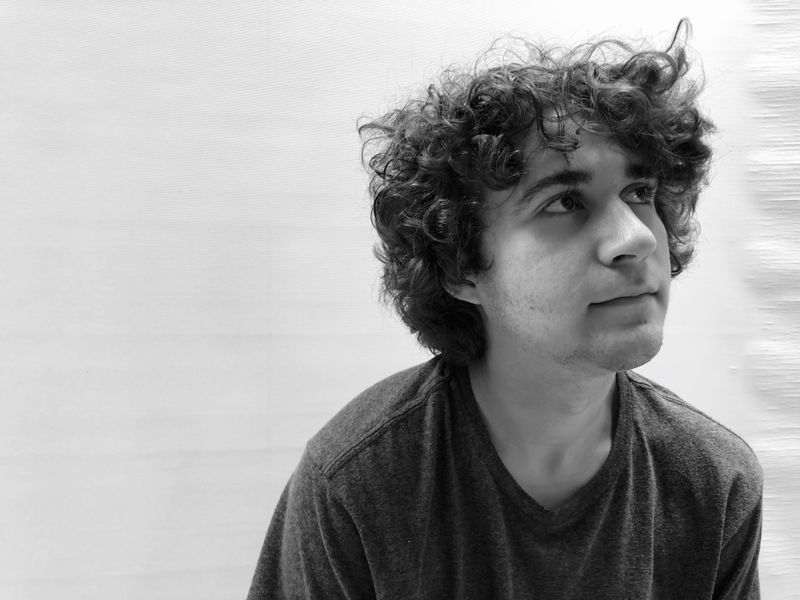We Are America
On Repeat
By Owen

North Quincy High School, Massachusetts
While it may have been with me for longer, my family and I only recognized it when I was about 10. OCD is traditionally known for the compulsions, such as repeated hand washing or excessive organization. There is another form, however, based more on obsession. That is what I have. It is harder to describe than the compulsive variety, because all of it goes on inside your head. While everyone feels anxious about things, they usually forget it and eventually move on. I was unable to do that.
The next two years were some of hardest in my life. Almost every anxious thought and trivial worry was on repeat in my head. I remembered everything, and all of the lesser anxieties combined into a near-constant feeling of panic. In retrospect, some of these worries were so arbitrary they now seem ridiculous. My family was very supportive and helpful during this time, and they found me help. The strategies that I learned from my psychiatrist were what ultimately helped me to start taking control over my disorder.
The most common element of OCD is doubting, hence its colloquial name, “the doubting disease.” You doubt your memory, health, morality, and sometimes even sanity, until nothing seems certain. Trying to be reasonable and to logically engage with the doubts is pointless and often harmful, as due to its nature you can never be completely certain if there is anything real to worry about. As a product of an irrational part of myself, trying to apply reason to these thoughts was pointless. The technique I learned, and still practice to this day, is not engaging.
Since I was much younger at the time, these techniques were told to me in simple terms. I was told to “boss it back,” a phrase that, due to its nearly constant internal repetition over two years, has become ingrained in my memory. Instead of trying to reason with the doubts, I learned to simply reject them. It was very difficult at first, as I would still sometimes entertain my doubts as possibly helpful. Over time, however, I became better at not engaging. Through this practice, I eventually was able to take control of my disorder. While still not gone, it is mostly dormant now, only resurfacing during times of external stress. In those times, I must remember my old techniques and not engage my doubts. Usually I am able to resist, but when I am not disciplined, I can fall back into old habits. For example, last year, around midterms, I convinced myself that I had multiple forms of skin cancer, and because I didn’t immediately reject the irrational thought, and entertained it as a real danger, it took me several months to fully resolve the issue.
My struggle with this disorder gave me much greater empathy and awareness of mental health issues. Seeking help from a psychiatrist was invaluable in my overcoming this challenge, and those also struggling with mental health should not feel afraid to get help. Unfortunately, there still exists a cultural stigma concerning mental health issues, which may dissuade some from seeking the assistance they need. There needs to be greater national awareness and less stigmatization over mental health disorders, so that people don’t feel discouraged or broken for simply experiencing a problem outside of their direct control. When you are struggling with mental illness, one can feel powerless, but with time and work there is a light at the end of the tunnel.
© Owen. All rights reserved. If you are interested in quoting this story, contact the national team and we can put you in touch with the author’s teacher.